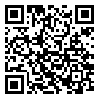مجله رویش روانشناسی از دادن گواهیهای کاغذی معذور است. لطفا تقاضا نکنید. همه گواهی ها در صفحه شخصی کاربران موجود است.
year 14, Issue 2 (Spring 2025 2025)
Rooyesh 2025, 14(2): 113-122 |
Back to browse issues page
Research code: ۹۷۰۰۱۴۰۸۸
Ethics code: IR.IAU.TABRIZ.REC.1400.022
Download citation:
BibTeX | RIS | EndNote | Medlars | ProCite | Reference Manager | RefWorks
Send citation to:



BibTeX | RIS | EndNote | Medlars | ProCite | Reference Manager | RefWorks
Send citation to:
Hakimi N, Aghdasi A, Sahebi A, Hosseininasab S D. (2025). Comparison of the Effectiveness of Reality Therapy and Acceptance and Commitment Therapy on Communication Skills in Women with Multiple Sclerosis. Rooyesh. 14(2), 113-122.
URL: http://frooyesh.ir/article-1-5768-en.html
URL: http://frooyesh.ir/article-1-5768-en.html
1- Ph.D Student of Psychology, Department of Psychology, Tabriz Branch, Islamic Azad University, Tabriz, Iran.
2- Assistant Professor, Department of Psychology, Tabriz Branch, Islamic Azad University, Tabriz, Iran. ,aghdasi@iaut.ac.ir
3- Faculty member of William Glaser Institiue.
4- Professor, Department of Psychology, Tabriz Branch, Islamic Azad University, Tabriz, Iran.
2- Assistant Professor, Department of Psychology, Tabriz Branch, Islamic Azad University, Tabriz, Iran. ,
3- Faculty member of William Glaser Institiue.
4- Professor, Department of Psychology, Tabriz Branch, Islamic Azad University, Tabriz, Iran.
Abstract: (1086 Views)
This research aimed to comparison of the effectiveness of reality therapy and acceptance and commitment therapy on communication skills in women with multiple sclerosis. The present research was a quasi-experimental study type of pre-test/post-test with a control group. The statistical population of the research included all women with multiple sclerosis in Hamadan city in 2022; among them, 48 people were selected by convenience sampling and randomly assigned to two experimental groups and a control group. The instrument of this research included the Communication Skills Test (Burton, 1990) (CST). The analysis of the covariance test was used to analyze the data. The findings showed that by controlling for the pretest effect, there was a significant difference between the three experimental and control groups at the 0.05 level. Also, the average score of communication skills in the reality therapy group was significantly higher than the acceptance and commitment therapy group (p<0.05); it showed more effectiveness of reality therapy than acceptance and commitment therapy. Therefore, it can be concluded that reality therapy is a more effective intervention than acceptance and commitment therapy in improving communication skills in women with multiple sclerosis.
Keywords: Communication Skills, Reality Therapy, Multiple Sclerosis, Acceptance and Commitment Therapy, Women.
Type of Article: Research |
Subject:
Clinical Psychology
Received: 2024/11/4 | Accepted: 2024/12/10 | ePublished: 2025/04/30
Received: 2024/11/4 | Accepted: 2024/12/10 | ePublished: 2025/04/30
Send email to the article author
| Rights and permissions | |
 |
This work is licensed under a Creative Commons Attribution-NonCommercial 4.0 International License. |





